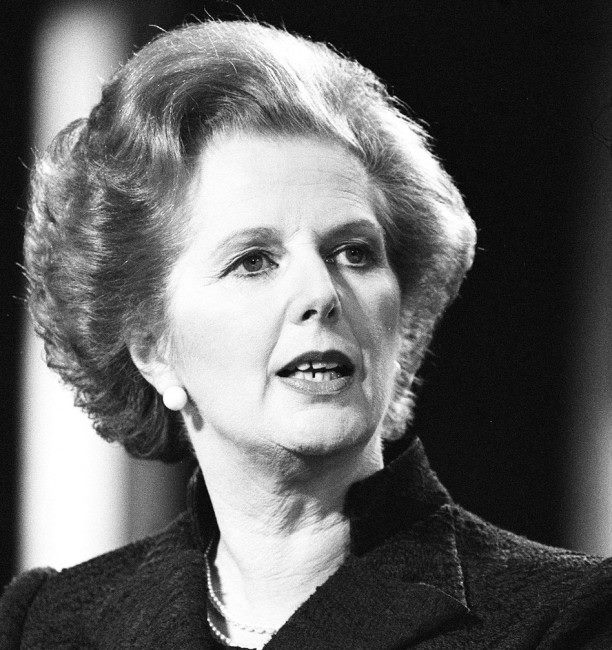By Ruben Avxhiu
The death of Margaret Thatcher has been followed by mixed reactions in UK and in the world, as she was often the kind of politician who was either loved or hated, but whose influence no one dared to downplay.
There was no ambivalence however in the Eastern half of Europe which was stuck for nearly half a century under communism. For her role in the fall of the Soviet Empire, which led to democratic changes in the former communist countries, Thatcher will be forever admired and respected.
Albania was a good example of this. It was telling that the leader of the Socialist Party, Edi Rama, paid tribute on Twitter to the late British leader. “A great woman died. She was respected by all her adversaries,” he wrote before retweeting a number of posts from BBC and other news sites with facts about her life.
Albania’s current Prime Minister Sali Berisha, who is closer to her political ideology praised her as “one of the most distinguished political personalities of all times.”
He also recalled his first meeting with her, when he was still a political novice, as one of the leaders of the anti-communist opposition in Albania. She had agreed to meet him during his visit in the United Kingdom but as Berisha recalls, it was not to talk about the collapse of communism in Albania.
Instead the Iron Lady, prescient like very few others in the Western world, wanted to ask Berisha about the rise of extreme nationalism in the neighboring Serbia and the repression against the Kosovars.
A few years later, her criticism of the world leaders was scathing. To her the phenomena of “mass rape, mass graves, death camps, historic communities wiped out by ethnic cleansing” were “monuments to Milosevic’s triumph” but also a direct “result” of “eight long years of Western weakness”. She compared the West demurring towards nationalist and militarist Serbia to the weakness shown towards Hitler in the 30s.
Margaret Thatcher was maybe the first international political personality to call for the independence of Kosova, when NATO’s war against Yugoslavia was raging high, in April 29th, 1999, in a truly historic speech.
“It would be both cruel and stupid to expect the Albanian Kosovans now to return to live under any form of Serbian rule. Kosova must be given independence, initially under international protection”, she said. It took the rest of the Western world six to seven more years to reach to a similar conclusion.
Showing once again to be gifted with a formidable foresight, she added: “And there must be no partition, a plan that predictable siren voices are already advancing. Partition would only serve to reward violence and ethnic cleansing. It would be to concede defeat.”
Unlike the current leaders of the world, crippled by an immoral political correctness which endeavors to assign moral equivalence between the aggressor and the victim, she said: “…I am unmoved by Serb pleas to retain their grasp on most of Kosova because it contains their holy places. Coming from those who systematically leveled Catholic churches and Muslim mosques wherever they went, such an argument is cynical almost to the point of blasphemy.”
Today, when Serbia has once again rejected a new deal from a toothless and accommodating European Union; when almost 14 years after the war, Serbia still refuses to take responsibility for the crimes against humanity committed in Kosova, and continues to challenge the West in its own backyard, it is natural to miss the Iron Lady and the type of leader that she was. UK and the world remain divided over her legacy, but the truth is that the West could really use a leader like her.
Today, as Baroness Ashton meets the Prime Minister of Serbia to receive his forewarned insulting rejection of the EU plan, she should take a page from the book from another Baroness, the late Margaret Thatcher and stand up for the true peace and stability in the Balkans.
